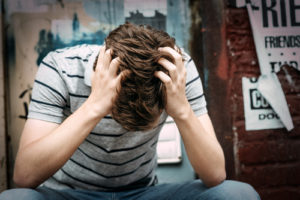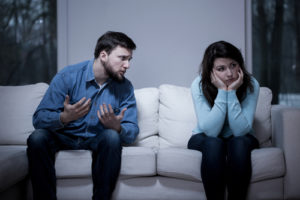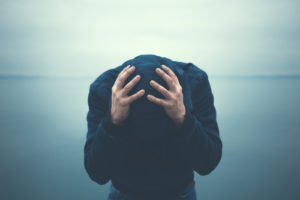Back to Student Counselling Page
Back to Sexual Health Page
During your time at college, you or a friend may experience sexual, emotional and/or physical abuse. This may happen to you personally or to others around you.
Please be aware that should any abuse of this nature occur, there are support services available to you at the Student Health Service at I.T. Sligo.
Sexual Abuse
Sexual Abuse is defined as unwanted sexual activity. Offenders threaten, take advantage and/or force themselves on the victim. In a lot of cases, the victims and offenders know each other.
Reactions to this can be :
- Shock

- Fear
- Disbelief
- Anger
- Feelings of Loss or Isolation
Long-Term Reactions can be:
- Anxiety
- Fear
- Anger
- Post-Traumatic Stress Disorder
What can you do?
Should you or a friend experience a sexual assault, you do not need to make any decisions now about reporting the assault to authorities but it is a good idea to leave your options open.
- Contact your local Rape Crisis Centre as soon as possible. Staff will give you the information you need to help you make your decisions about what happens next and to support you in whatever you decide to do. This will include information about your nearest specialist Sexual Assault Treatment Unit (SATU)
- You can ask a friend to contact the Rape Crisis Centre for you or ask a friend to come with you.
- If you decide you want to report the rape or sexual assault to the Gardaí, do not wash until after you have had a medical and forensic examination because important forensic evidence might be washed away.
- If you were attacked and you want to report it, don’t eat, drink, smoke or use toothpaste or mouthwash until samples have been taken.
- Do not throw out or wash underwear or clothes that you were wearing at the time of the assault as these will be needed for forensic examination.
Where can I get help?
Student Counselling Service on:
- Email: studentcounsellor@nullitsligo.ie or
- Phone: 071 9305463
Student Health Service on:
- Phone: 071 93 05205 or
- Email: studenthealthservices@nullitsligo.ie
| Rape Crisis and Sexual Abuse Counselling Centre Sligo, Leitrim, West Cavan | 1800 750 780 or email info@nullsrcc.ie |
| HSE National Counselling Service
The HSE National Counselling Service (NCS) is a professional, confidential counselling and psychotherapy service available free of charge in all regions of the country. |
1800 234 119
(for HSE West: Donegal, Leitrim, Sligo)
|
| Rape Crisis Network Ireland | 01 865 6954 |
| Women’s Aid National Freephone Helpline | 1800 341 900 |
| Aoibhneas (Domestic Abuse Support for Women and Children) | 01 867 0701 or email helpline@nullaoibhneas.org |
| www.oneinfour.ie | 01 662 4070 |
Emotional Abuse
Emotional abuse is defined as ongoing emotional maltreatment/neglect of an individual. It is also known as psychological abuse and can seriously damage an individual’s emotional well-being (NSPCC, 2017).  Emotional abuse can involve anything from deliberately scaring, threatening, ignoring and/or humiliating an individual.
Emotional abuse can involve anything from deliberately scaring, threatening, ignoring and/or humiliating an individual.
Emotional abuse can be explained in the following list. However, please note that not all cases will have these factors. Emotional Abuse is highly likely to impact negatively on an individual especially should it continue over a long period of time and lack protective behaviours/factors (Tusla, 2017);
- Rejection
- Absence of comfort, love, attachment
- Inappropriate punishment (e.g. taking possessions away, locking in bedrooms)
- Possessiveness
- Lack of “fun”
- Very little/No praise or encouragement
Where Can I Get Help?
Should you or another student experience this type of abuse, please know you can get support from;
Student Counselling Service on:
- Email: studentcounsellor@nullitsligo.ie or
- Phone: 087 3561756 or 083 0025881
Student Health Service on:
- Phone: 071 93 05205 or
- Email: studenthealthservices@nullitsligo.ie
| Rape Crisis and Sexual Abuse Counselling Centre Sligo, Leitrim, West Cavan | 1800 750 780 or email info@nullsrcc.ie |
| HSE National Counselling Service
The HSE National Counselling Service (NCS) is a professional, confidential counselling and psychotherapy service available free of charge in all regions of the country. |
1800 234 119
(for HSE West: Donegal, Leitrim, Sligo)
|
| Rape Crisis Network Ireland | 01 865 6954 |
| Women’s Aid National Freephone Helpline | 1800 341 900 |
| Aoibhneas (Domestic Abuse Support for Women and Children) | 01 867 0701 or email helpline@nullaoibhneas.org |
| www.oneinfour.ie | 01 662 4070 |
Physical Abuse

Physical abuse is defined as purposely hurting another individual causing injury and harm such as bruises, broken or fractured bones, burns and/or cuts. Physical abuse may come in the form of being slapped, hit, kicked, poisoned, burned or when items are thrown at you. Physical abuse is one of the most visible signs of abuse, it can start off as something small and build to something out of control.
Your time in college is where you learn a lot about yourself. Relationships are a big part of college- both sexual and platonic- and you will find out a lot about yourself from these experiences. Unfortunately, you may experience negative relationships and these can have a great toll on your mental health. The following is a list that will help you in recognising whether you are in abusive relationship or not. Most individuals who are in an abusive relationship will experience a range of these behaviours from the offender. Please know that you do not need to experience all of these to be in an abusive relationship.
Criticism and Verbal Abuse:
- Shouting
- Mocking
- Accusing
- Swearing
- Threatening
Isolation:
- Telling you what to do & where to go
- Stopping you from seeing friends and family
Harassment:
- Following you
- Opening your post and emails
- Embarrassing you in public
Breaking trust:
- Lying
- Being jealous
- Cheating
- Breaking promises
Disrespect:
- Being patronising
- Not listening/interrupting
- Taking money from you without asking
- Refusing to help
Pressure tactics:
- Sulking
- Threatening
- Lying to friends and family
- Threatening suicide
Physical violence:
- Punching
- Slapping
- Hitting
- Biting
- Pinching
- Kicking
- Pushing & Shoving
- Burning
- Choking
- Raping
Denial:
- Blaming you
- Being gentle/patient in public
- Crying and begging for forgiveness
- Saying it will never happen again
Threats:
- Intimidating
- Shouting
- Breaking/Destroying your possessions
- Punching walls
- Holding a knife or a gun
Sexual violence:
- Using force
- Threatening/Intimidating you to perform sexual acts
- Having sex with you when you don’t want to have sex
- Degrading treatment based on your sexual orientation (SafeIreland, 2017)
Where Can I Get Help?
If you have experienced abuse, you must seek help. You should not have to deal with this on your own. Support is there to help handle the situation and make it much easier on you to make a decision on what you want to do.
Student Counselling Service on:
- Email: studentcounsellor@nullitsligo.ie or
- Phone: 087 3561756 or 083 0025881
Student Health Service on:
- Phone: 071 93 05205 or
- Email: studenthealthservices@nullitsligo.ie
| Rape Crisis and Sexual Abuse Counselling Centre Sligo, Leitrim, West Cavan | 1800 750 780 or email info@nullsrcc.ie |
| HSE National Counselling Service
The HSE National Counselling Service (NCS) is a professional, confidential counselling and psychotherapy service available free of charge in all regions of the country. |
1800 234 119
(for HSE West: Donegal, Leitrim, Sligo)
|
| Rape Crisis Network Ireland | 01 865 6954 |
| Women’s Aid National Freephone Helpline | 1800 341 900 |
| Aoibhneas (Domestic Abuse Support for Women and Children) | 01 867 0701 or email helpline@nullaoibhneas.org |
| www.oneinfour.ie | 01 662 4070 |
